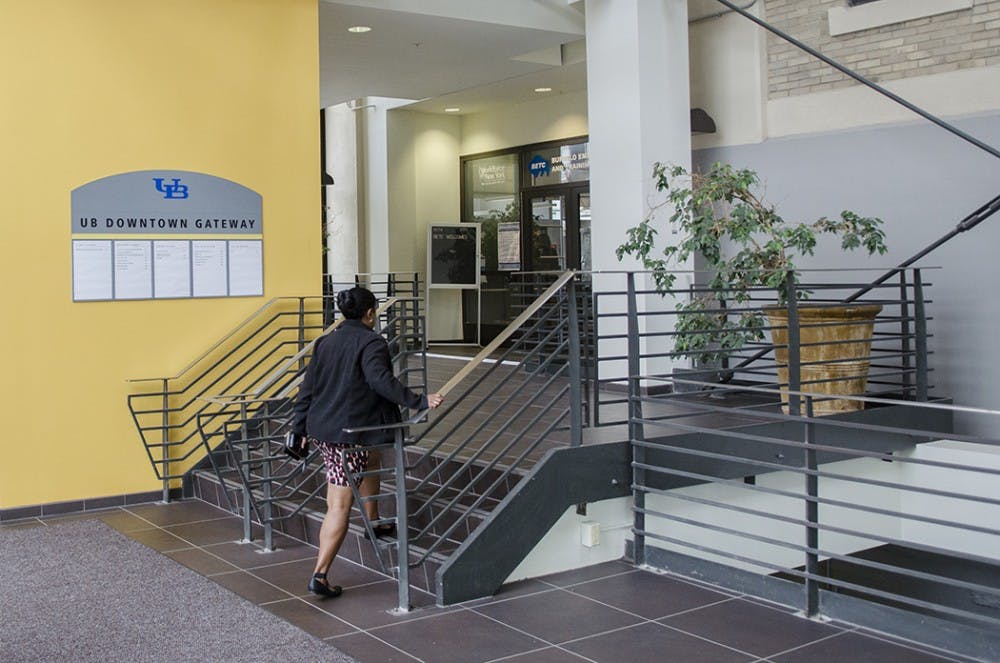Approximately 5.3 million people in the United States have Alzheimer’s disease as of 2015, according to the Alzheimer’s Association. There is no known cure.
But UB’s Jacobs School of Medicine and Biomedical Sciences is currently working to improve geriatric care.
UB’s medical school recently received a five-year grant of $2.35 million from New York State to develop a Center of Excellence that intends to improve diagnostic and treatment plans for patients with Alzheimer’s disease and other memory disorders across Western New York. The initiative will combine person-centered care with state-of-the-art research and treatment facilities.
The grant builds upon the preexisting Alzheimer’s Disease Assistance Center (ADAC) of Western New York and is anchored by UB’s Alzheimer’s Disease and Memory Disorder Center.
Bruce R. Troen, MD, professor of medicine and co-principal investigator of the grant, described the Center of Excellence as “the next step in an evolving service-based mission to provide education and awareness, and subsequently better treatment options for both the medical and patient communities.”
The Center of Excellence’s primary mission is to enhance early screening and diagnostic practices of Alzheimer’s. The staff at the center looks to do so in a manner in which patients and family members, but also physicians and other primary caregivers, receive the educational tools necessary to help those affected.
The center’s team will expand upon the structure of the ADAC, including a nurse practitioner, a registered nurse and social workers who will go to neighboring counties.
As a geriatrician, Troen said he emphasizes the importance of approaching Alzheimer’s and other memory disorders from a comprehensive, holistic viewpoint.
“It’s person-centered care, not just patient. I make this distinction because when you have cognitive impairment, it not only increases the risk for other diseases, but functional, spiritual, social, psychological issues often accompany the dementia,” Troen said. “These are issues that go beyond the medical realm.”
He said the program’s centrality to the medical school will inculcate a broader and deeper understanding of geriatric needs to the next generation of medical providers.
Early diagnosis has been the center’s focus and it hopes to bring this same emphasis to the surrounding seven counties in the Buffalo area.
Early diagnosis lets patients spend more years in the mild stage dementia, when they can do everything they want to without people noticing something is wrong, according to Kinga Szigeti, MD, PhD, and the associate professor of neurology and director of UB’s Alzheimer’s Disease and Memory Disorders Center. She is also the co-principal investigator on the grant.
Szigeti said that patients and physicians alike face the challenge of early recognition, and subsequent diagnosis. She said she often sees patients coming in and no one has thought that these people may have dementia.
“Our medicine is so fast-paced, that sometimes primary care doctors don’t have the time to pick up the signs,” Szigeti said. “We want to give them the tools, something even as simple as a 10-minute memory test, can act as a screening tool and make all the difference.”
In addition to preventative care and early diagnosis, Szigeti said the center looks to make clinical trials available to a larger group of people. If patients are interested in participating, they may have access to effective medicine that will not be approved by the FDA for close to a decade – a time frame that is not suitable for some patient’s lives.
Small symptoms in the beginning, like mild forgetfulness, are perhaps easier to overlook in the face of a disease that is widely understood as incurable.
Through enhanced education, the Center of Excellence aims to inform both healthcare providers and patients how they can improve the quality of life, despite the diagnosis.
“People don’t want to get evaluated because they’re afraid of the stigma, they don’t want to know there’s nothing we can do for you,” Szigeti said. “Well, that’s not true.”
Sarah Crowley is a news staff writer and can be reached at news@ubspectrum.com





